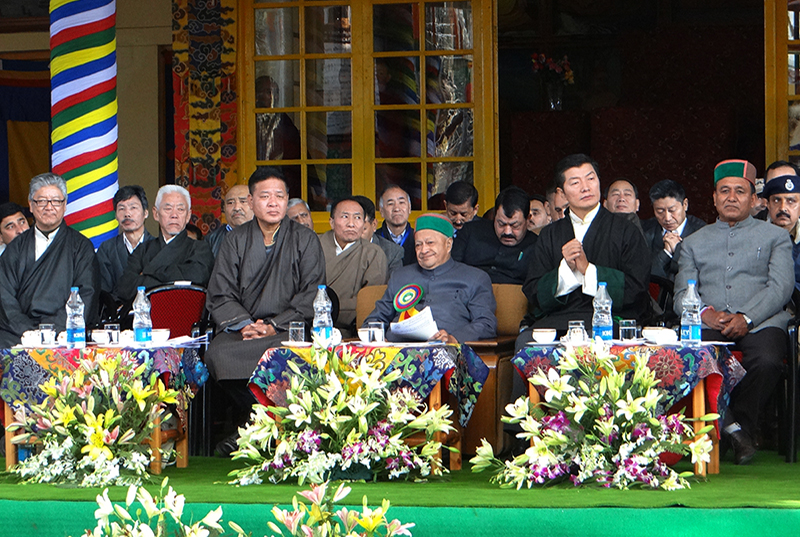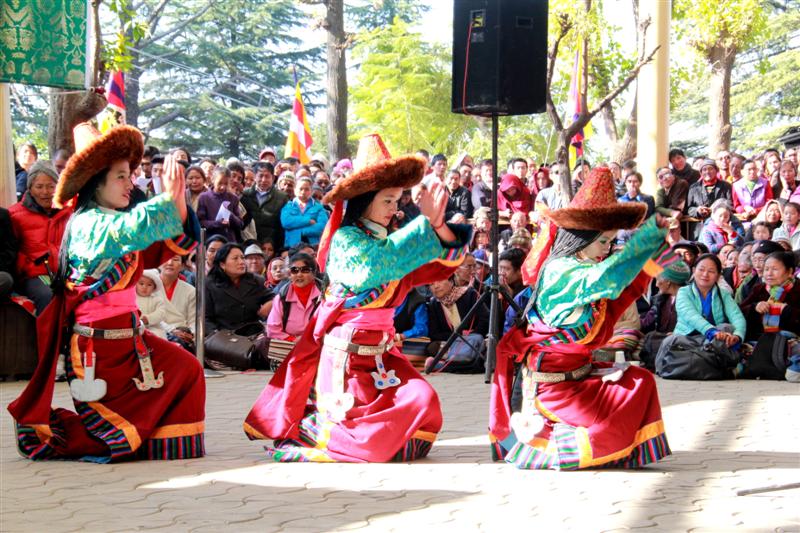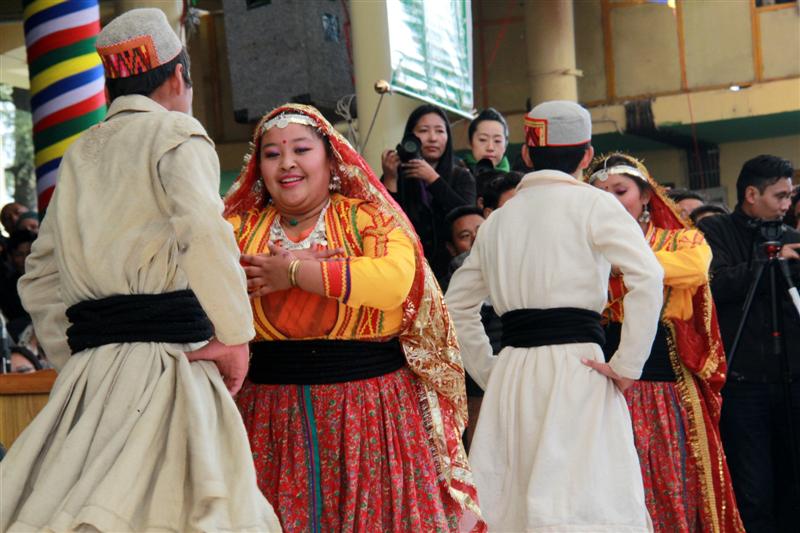
(TibetanReview.net, Dec12, 2014) – The 25th anniversary of the conferment of the Nobel Peace Prize on the Dalai Lama was marked by the exile Tibetan administration at Dharamshala, India, on Dec 10 with Chief Minister Mr Virbhadra Singh of Himachal Pradesh inaugurating a Himalayan International Festival. Thousands of people gathered for the function, which was held on the courtyard of the Tsuglakhang, the main Buddhist temple in town. Several Chinese intellectuals paid tribute to the 1989 laureate in online messages.
In his address, the head of the exile Tibetan administration, Sikyong Lobsang Sangay, said his administration would hold very shortly a meeting of its Task Force on negotiation with China. The purpose, however, was to reaffirm the Central Tibetan Administration’s steadfast commitment to the Middle Way Approach of seeking autonomy under Chinese rule rather than as a result of any positive development in relations with Beijing which might lead to a dialogue.
He called the Dalai Lama “the life and soul of Tibet and the Tibetan people” and said one of his “greatest contributions to and legacies for the Tibetan people” has been his building of the institution of democracy in exile.
Regarding his contribution to global peace, the Sikyong noted that even fellow Nobel Peace laureates refer to the Dalai Lama as a “Super Laureate”.
The Speaker of the Tibetan Parliament in Exile, Mr Penpa Tsering, also addressed the gathering. He demanded that China take full responsibility for the tragedy of Tibet which had led to 132 self-immolations by protesting Tibetans since Feb 2009. He challenged China to change its policies in keeping with its claims about being respectful of the Tibetan people’s rights and culture.
Both the Tibetan leaders made the point that Dec 10 also marked the world human rights day and complimented this year’s Nobel Peace laureates Mr Kailash Satyarthi of India and Ms Malala Yousafzai of Pakistan. They expressed admiration for their courageous struggle for the rights of the underprivileged and abused children.

***
Chief Minister Virbhadra Singh was the chief guest for the occasion. The former Raja told the gathering of thousands on the Tsuglakhang courtyard that his family had a relationship with the Tibetan people dating back to the times of the 5th Dalai Lama in the 17th century. He added that he considered the Tibetans living in the state as being like subjects of his state and promised all help for their welfare.
Mr Singh, who was accompanied by some of his senior officials, including Urban Development Minister Mr Sudhir Sharma, and members of the state legislature, also inaugurated a two-day Himalayan International Festival. “We don’t consider Tibetans as foreigners but as inseparable part of the family of the people of Himachal Pradesh and we sincerely want them to flourish and will be always by their side to assist and ensure their development in all spheres,” Mizonews.Net Dec 11 quoted him as saying while inaugurating the festival.
The report cited Mr Vijay Singh Mankotia, Vice-Chairman of the HP Tourism Development Board, as saying in his address that the State Government was committed to promote tourism in a big way in Macleodganj.
***
Several US-based Chinese writers, lawyers, scholars and political activists posted messages on overseas Chinese news websites, including Boxun, reported Washington-based International Campaign for Tibet Dec 10. They included Washington-based Yan Jiaqi, former political advisor to Premier Zhao Ziyang, who complimented the Dalai Lama for the selflessness with which for over half a century he endlessly strove for Tibetan rights, Sino-Tibetan unity, and peace in China and the world.
Washington-based Chen Guangcheng, the self-taught blind human rights lawyer who had fled China recently, said by continuously promoting the idea of peace across the world, and advocating tolerance and brotherhood, the Dalai Lama had made a tremendous contribution to peace in China and the rest of the world. He felt that fraternal human rights values could reverse the Chinese Communist Party’s media propaganda meant to give common people the erroneous idea that the Dalai Lama was calling for Tibetan independence. This, he said, would play a very important role in China’s peaceful turn towards democracy.

Boston-based Human rights lawyer Teng Biao called the Dalai Lama an important leader for the movement to promote peace and nonviolence, adding he had made outstanding contributions towards promoting democracy for the Tibetan people, fighting to give Tibetan people autonomy, promoting exchanges and reconciliation between the Tibetan and Chinese ethnicities, advocating ethnic unity and religious tolerance, and promoting the human soul and harmonious self-liberation.
And Delaware-based exiled Writer Su Xiaokang said the Dalai Lama had performed miracles in using Buddhism to give rise to harmonious ethics between man and nature, a universal value.


